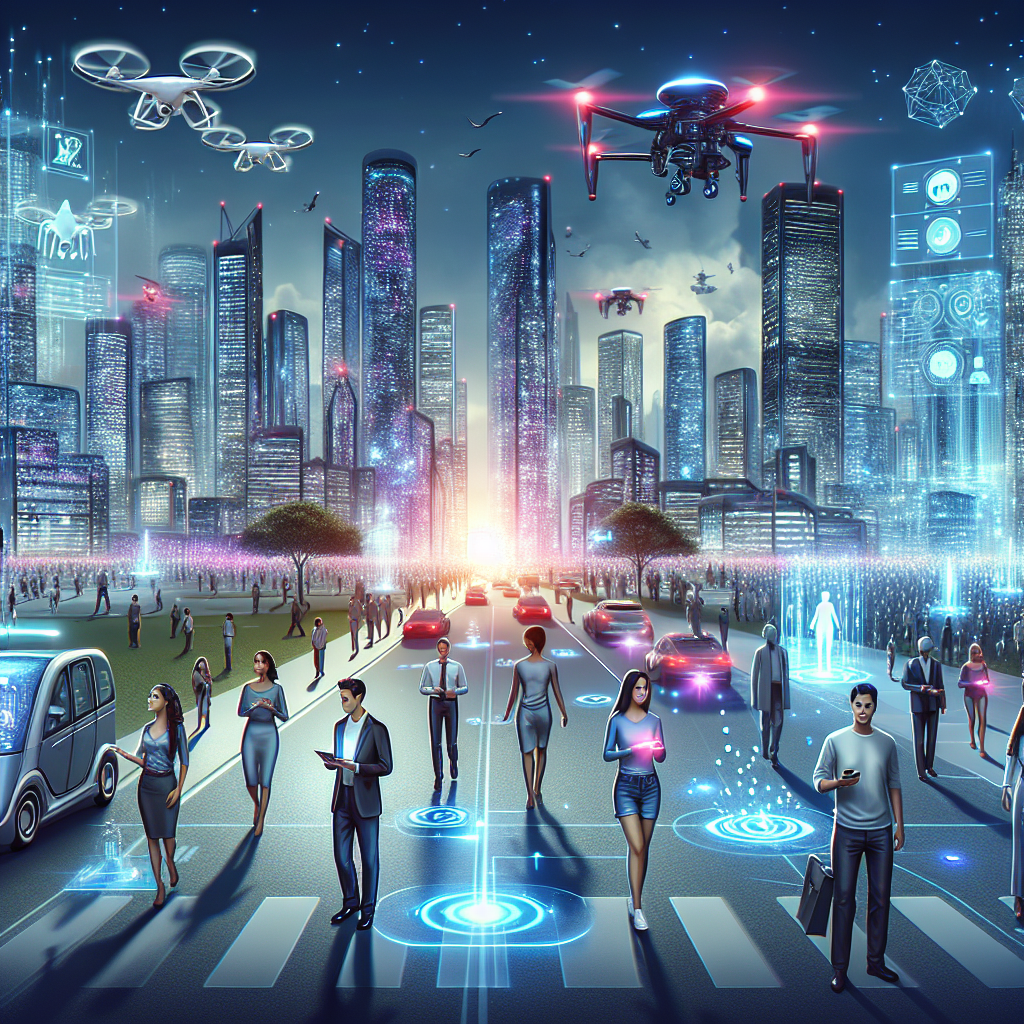The Impact of AI and Machine Learning on Society
Artificial intelligence (AI) and machine learning have become ubiquitous in our daily lives, impacting various aspects of society. From healthcare to finance, education to entertainment, these technologies are transforming the way we live, work, and interact with the world around us. While the potential benefits of AI and machine learning are vast, there are also concerns about their impact on society. In this article, we will explore the ways in which AI and machine learning are shaping our world and discuss some of the key challenges and opportunities they present.
AI and Machine Learning in Healthcare
One of the most significant impacts of AI and machine learning is in the field of healthcare. These technologies have the potential to revolutionize the way we diagnose and treat diseases, improving patient outcomes and reducing healthcare costs. AI algorithms can analyze vast amounts of medical data to identify patterns and trends that human doctors may miss, leading to more accurate diagnoses and personalized treatment plans.
Machine learning is also being used to develop new drugs and treatments, speeding up the drug discovery process and bringing new therapies to market more quickly. For example, researchers are using AI to analyze the genetic makeup of cancer cells and identify potential targets for new cancer drugs. By leveraging machine learning algorithms, scientists are able to predict which drugs are most likely to be effective for specific patients, leading to more targeted and personalized treatments.
AI and Machine Learning in Finance
In the financial sector, AI and machine learning are being used to detect fraud, predict market trends, and automate trading processes. These technologies can analyze vast amounts of financial data in real-time to identify anomalies and patterns that may indicate fraudulent activity. By using machine learning algorithms, financial institutions can detect fraudulent transactions more quickly and accurately, saving billions of dollars each year.
Machine learning algorithms are also being used to predict stock market trends and make investment decisions. By analyzing historical market data and identifying patterns and trends, AI systems can make more informed investment decisions, leading to higher returns for investors. Additionally, AI-powered trading algorithms can execute trades at lightning speed, taking advantage of market opportunities that human traders may miss.
AI and Machine Learning in Education
In the field of education, AI and machine learning are being used to personalize learning experiences for students, improve educational outcomes, and streamline administrative processes. AI-powered tutoring systems can adapt to each student’s learning style and pace, providing personalized feedback and support to help students master difficult concepts. Machine learning algorithms can also analyze student data to identify at-risk students and provide targeted interventions to help them succeed.
AI and machine learning are also being used to automate administrative tasks in schools and universities, freeing up educators to focus on teaching and research. For example, AI-powered chatbots can answer student inquiries, schedule appointments, and provide information about courses and programs, reducing the burden on administrative staff and improving the overall student experience.
Challenges and Opportunities
While the potential benefits of AI and machine learning are vast, there are also concerns about their impact on society. One of the biggest challenges is the potential for job displacement, as AI and machine learning technologies automate tasks that were previously performed by humans. This has the potential to disrupt entire industries and lead to widespread unemployment, particularly for low-skilled workers.
Another challenge is the potential for bias in AI algorithms, as these systems learn from historical data that may contain implicit biases. For example, AI algorithms used in hiring processes may inadvertently discriminate against certain groups of people based on factors such as race or gender. It is essential for developers to address these biases and ensure that AI systems are fair and equitable for all users.
Despite these challenges, there are also significant opportunities for AI and machine learning to improve society. These technologies have the potential to increase efficiency, reduce costs, and improve outcomes in various sectors, from healthcare to finance to education. By leveraging the power of AI and machine learning, we can address some of the most pressing challenges facing society, such as healthcare disparities, financial fraud, and educational inequality.
FAQs
Q: What is the difference between AI and machine learning?
A: AI refers to the broader field of creating intelligent machines that can perform tasks that typically require human intelligence, such as speech recognition, decision-making, and problem-solving. Machine learning is a subset of AI that focuses on developing algorithms that can learn from and make predictions based on data.
Q: How is AI and machine learning being used in healthcare?
A: AI and machine learning are being used in healthcare to improve diagnostics, develop new treatments, and streamline administrative processes. These technologies can analyze medical data to identify patterns and trends, predict patient outcomes, and personalize treatment plans.
Q: What are some of the challenges of AI and machine learning?
A: Some of the challenges of AI and machine learning include potential job displacement, bias in algorithms, and ethical concerns. Developers must address these challenges to ensure that AI systems are fair, transparent, and equitable for all users.
Q: What are some of the opportunities of AI and machine learning?
A: Some of the opportunities of AI and machine learning include increased efficiency, reduced costs, and improved outcomes in various sectors. These technologies have the potential to address some of the most pressing challenges facing society, such as healthcare disparities, financial fraud, and educational inequality.
In conclusion, AI and machine learning are transforming society in profound ways, from healthcare to finance to education. While there are challenges and concerns associated with these technologies, there are also significant opportunities for them to improve efficiency, reduce costs, and enhance outcomes across various sectors. By addressing the challenges and leveraging the opportunities of AI and machine learning, we can create a more equitable and prosperous society for all.

